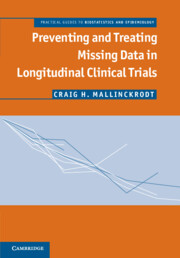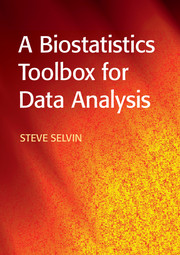Preventing and Treating Missing Data in Longitudinal Clinical Trials
Recent decades have brought advances in statistical theory for missing data, which, combined with advances in computing ability, have allowed implementation of a wide array of analyses. In fact, so many methods are available that it can be difficult to ascertain when to use which method. This book focuses on the prevention and treatment of missing data in longitudinal clinical trials. Based on his extensive experience with missing data, the author offers advice on choosing analysis methods and on ways to prevent missing data through appropriate trial design and conduct. He offers a practical guide to key principles and explains analytic methods for the non-statistician using limited statistical notation and jargon. The book's goal is to present a comprehensive strategy for preventing and treating missing data, and to make available the programs used to conduct the analyses of the example dataset.
- Brings a practical approach to both the analysis of incomplete data and most importantly to preventing or limiting the amount of missing data
- Statistical notation and jargon is limited making it accessible to non-statistical audiences
Reviews & endorsements
'… this monograph is good value, and I recommend all those involved in the design, conduct or analysis of trials to peruse a copy. Non-statisticians will inevitably be frustrated at times, but if this monograph fosters improved discussion and understanding of the issues raised by missing data in study teams - and how they might be addressed - it will have done its work. In his choice of audience Mallinckrodt set himself a high bar … it has … been cleared. In addition, [his] wry turn of phrase was an unexpected pleasure. You'll miss this if you don't buy it!' James R. Carpenter, Journal of Biopharmaceutical Statistics
Product details
January 2013Paperback
9781107679153
180 pages
247 × 174 × 11 mm
0.36kg
6 b/w illus. 32 tables
Available
Table of Contents
- Part I. Background and Setting:
- 1. Why missing data matter
- 2. Missing data mechanisms
- 3. Estimands
- Part II. Preventing Missing Data:
- 4. Trial design considerations
- 5. Trial conduct considerations
- Part III. Analytic Considerations:
- 6. Methods of estimation
- 7. Models and modeling considerations
- 8. Methods of dealing with missing data
- Part IV. Analyses and the Analytic Road Map:
- 9. Analyses of incomplete data
- 10. MNAR analyses
- 11. Choosing primary estimands and analyses
- 12. The analytic road map
- 13. Analyzing incomplete categorical data
- 14. Example
- 15. Putting principles into practice.










